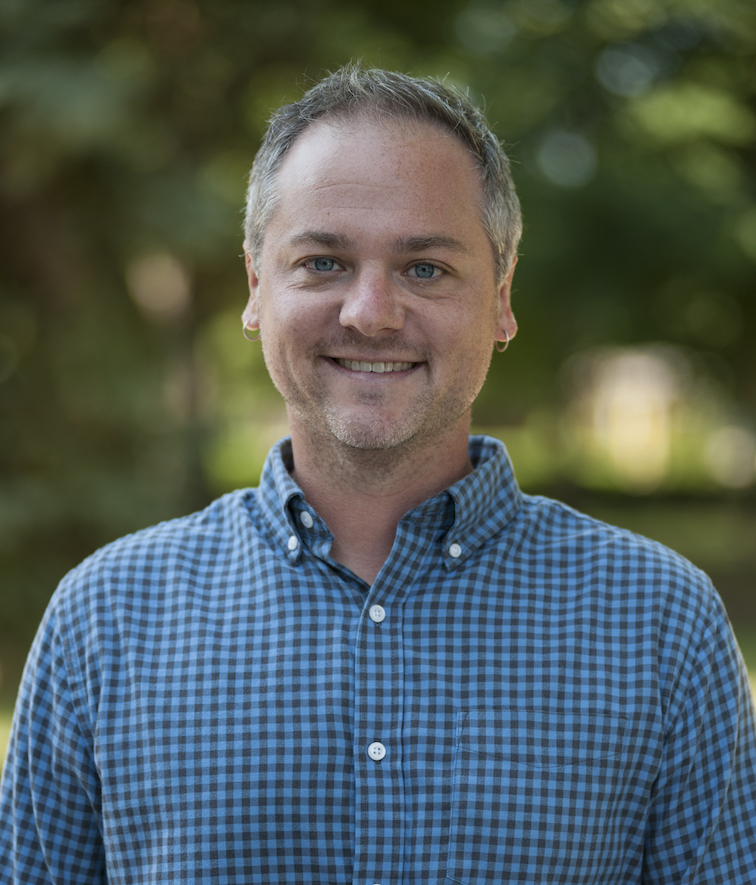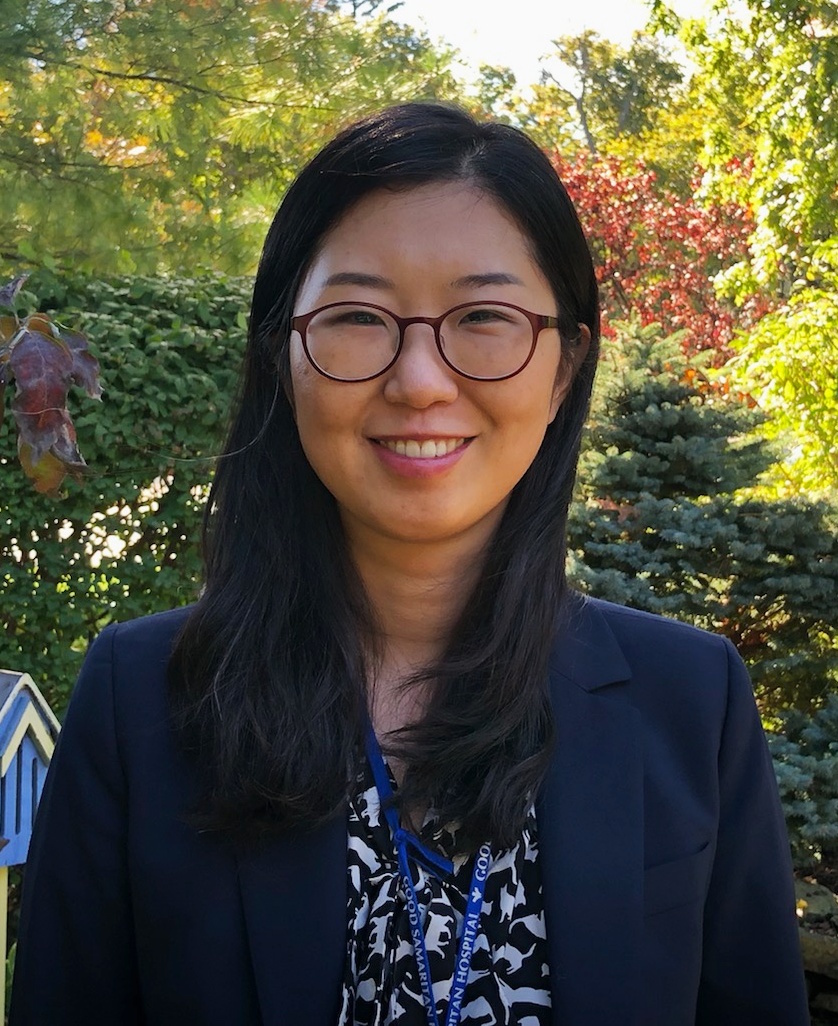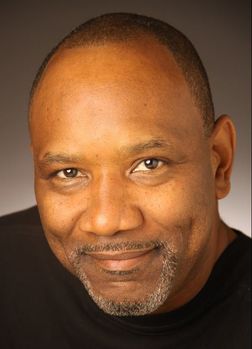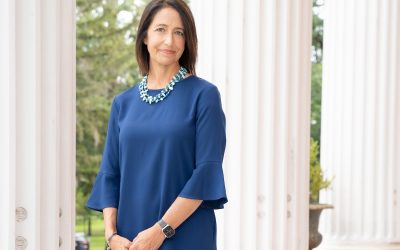Drew prepares students for a life of healing and supporting others
February 2021 – Drew Theological School provides the experience and education required to pursue a career in chaplaincy. From an interdisciplinary curriculum to varied hands-on experiences that address real-world issues, a Drew education promotes the adaptability, life-giving inspiration and community solutions required for the next generation of faith leaders.
We talked to five Theological School alumni that work in several areas of chaplaincy, including hospital, campus, military and senior care. Read on to learn how Drew prepared them for a life of healing and supporting others.
Derek Elkins T’10, Master of Arts in Religion
Protestant Chaplain and Co-Director of the Emmaus Center for Spiritual Life & Vocation
St. Norbert College, De Pere, WI
Responsibilities
“I joined St. Norbert College to support the spirituality of students from Protestant Christian denominations. In this role, I lead an inclusive worship service called Thin Place with students from a variety of Protestant traditions and journey with students discerning their vocations, I’m also a chaplain for the SNC football team, and bring public art on campus to enrich the liturgical year and offer spiritual support and conversation to all members of campus. I also co-lead the TRIPS Program, empowering students to grow through hands-on education, service and reflection to become engaged citizens who strengthen communities by committing to social justice.”
What led you to seminary, specifically Drew Theological School?
“I graduated with my first seminary degree and felt like I still had too many questions of my own to sort out before I could offer much to anyone else. I was raised in a religious community that made the stakes feel VERY high for people of faith, and I needed an environment that did not demand perfection (ironic for a United Methodist seminary). Drew gave me a community that is committed to training spiritual leaders who are committed to social justice, academic integrity and faithfulness without losing touch with grace and love. I needed an education that taught me to use my head and heart together, that’s what I got at Drew.”
"Ultimately, the Drew community brings together people with a common commitment to God's unfolding desire for love and equity in the world. It was an incubator for good ministry and good citizenship.”
How did Drew prepare you for your current role as a chaplain?
“Drew surrounded me with experienced ministers who taught me so much about how to be a good chaplain and spiritual leader. Kevin Miller, executive director of Graduate Admissions, was my boss the whole time I was a student at Drew and he taught me how to have a pastoral presence in a professional setting. Jeff Markay, senior pastor at Chatham United Methodist Church, was a mentor during the years after Drew and shared so much wisdom about pastoral care. I took courses in PREP for four semesters at Northern State Prison, and formed relationships that were pivotal in deepening my understanding of race and justice in America. Ultimately, the Drew community brings together people with a common commitment to God’s unfolding desire for love and equity in the world. It was an incubator for good ministry and good citizenship.”
Nicole Kaufman T’15, Master of Divinity
Chaplain
Arbor View Senior Living Community, Denver, CO
Responsibilities
“My role as chaplain began to take shape since COVID-19 began to wreak havoc on our country and the residents in our facility were considered the most vulnerable in the population. I became responsible for end-of-life visits when family members were not permitted to enter our building. I helped to counsel residents, staff and family when COVID took the lives of 24 of our residents and one staff member. I wrote sympathy cards to all of the families of those we lost. I began doing one-on-one visits with our residents to limit their isolation. I am currently in the process of planning a memorial service for all of those we’ve lost, and picking up the pieces of all we’ve been through these past several months.”
What led you to seminary, specifically Drew Theological School?
“I chose Drew Theological School per the nudging of an undergrad professor and mentor. She was aware that I was a more progressive individual and urged me to consider Drew for its forward thinking in regards to social justice issues. Drew was the only seminary to which I applied. I was not entirely convinced that I wanted to go to seminary at all. When I was accepted, I deferred for a year, so that I might gain some hands on experience. I ended up deciding at the end of that year that I was, in fact, called to ministry and would be attending seminary after all. I went with the intention of focusing on “special needs ministry,” or what I now refer to as “all abilities ministry.”
How did Drew prepare you for your current role as a chaplain?
“I believe that every course I took at Drew helped prepare me for one or more aspects of my work as chaplain. I was offered courses on grief and dying, pastoral care and counseling, religion and the social process, spirituality of struggle, pastoral formation, supervised ministry and preaching. All of those, and so many more, have definitely served me well during my time at Arbor View.
“The one thing I wish I had taken prior to graduation was a unit or two of Clinical Pastoral Education (CPE). I am just now in the process of becoming a licensed chaplain, and it was my own fault for not taking the opportunity at Drew when I had it. If you have a desire for pastoral care at all, I’d highly recommend taking a unit of CPE while in seminary! You can thank me later!”
Boram Lim T’14, Master of Divinity
Staff Chaplain
Good Samaritan Hospital, Suffern, NY
Responsibilities
“I provide spiritual and emotional support to patients, families and staff experiencing a wide array of challenging moments related to health issues and caregiving. Throughout the pandemic, my role has gone through series of adaptations. During the initial months of COVID-19, I focused on escorting families who come to the hospital to say good-bye to their dying loved ones, facilitating Zoom calls for families who cannot visit, making phone calls to offer many grieving families empathy and prayers, and being present with staff who were under an extreme stress and pressure. Since in-person spiritual care visits resumed, I have been helping patients and staff process the losses they experience in various aspects of their lives in relation to COVID-19 and beyond through one-on-one conversations.”
What led you to seminary, specifically Drew Theological School?
“The desire to learn and expand myself led to Drew. The idea of studying abroad appealed to me as an opportunity to experience the world beyond the theologically rigid Christian community that I was so used to until then. As I was researching seminaries, I was drawn to Drew’s progressive theology and concerns for social issues as well as the strong female leadership all of which I felt were different from the conservative theology and practices I grew up with. I felt excited for the unknown and the possibility that my mind and heart would grow and expand through studying at Drew, and its proximity to New York City cemented my decision due to my interest in art and wanting to explore the art world in the city.”
“My learnings at Drew prepared me to be an open-minded and empathetic chaplain to the patients, families and staff members from all walks of life and spiritual leanings."
How did Drew prepare you for your current role as a chaplain?
“My learnings at Drew prepared me to be an open-minded and empathetic chaplain to the patients, families and staff members from all walks of life and spiritual learnings. Not only did new, progressive theological ideas challenge and stimulate me intellectually, but also conversations and friendships with peers from diverse backgrounds in the Drew community helped me open my eyes and to break out of the narrow thinking and old beliefs that I had previously held about God, the Bible and fellow human beings.”
“Drew also taught me how to think critically and had such an impact on my own theological deconstruction and spiritual re-formation process. As challenging as this process has been, wrestling honestly with difficult questions about God and faith has made me become increasingly understanding and compassionate towards those with spiritual struggles in the midst of suffering. In my efforts as a chaplain to offer a safe, trusting space for patients, families and staff to open up and be heard, what I learned at Drew continues to empower me every day.”
Rodney James Lynch T’14, ’15, Master of Divinity and Master of Sacred Theology
Pastor and Executive Director
Baptist Student Foundation at Purdue University
Responsibilities
“I pastor college age young adults through offering spiritual counseling, creating and facilitating sacred space for interracial, intercultural, intergenerational, ecumenical and interfaith dialogues and fellowship amongst a richly diverse community.”
What led you to seminary, specifically Drew Theological School?
“I choose Drew Theological School for a multitude of reasons. My pastor at the time was in a Drew Theological School PhD program and encouraged me to go back to school. In addition, some friends and preaching peers of mine had all went to Drew as well. During my visit to Drew where two major things stood out that helped me to choose Drew over other theological schools in the area; the cost/scholarship with a stipend Drew offered me and the diversity of the faculty, staff and students; particularly the diversity amongst the faculty.”
How did Drew prepare you for your current role as a chaplain?
“First, Drew prepared me by stressing the importance of inclusivity, particularly through the lens of language, sexuality, gender, culture, ethnicity/race and age. My Theological training at Drew was very liberative, in that I was liberated from a dogmatic religiosity—that is everything but inclusive. Therefore, I was prepared and understood the importance of cross-cultural collaborations. As a chaplain/campus minister, it is vital that I see the image of God in all humanity, regardless of language, sexuality, gender, culture, ethnicity/race, age, etc.
“Second, Drew also taught me the importance of self-care—burn-out is not a recipe for success. Finally, it was in the walls of Drew Theological School where my voice was valued, which has helped me overcome the challenge of diminishing myself and what I contribute to the educational community and abroad. I began to understand and accept who I am—my prophetic witness as a liberationist.”
Krysta Angelique Piper T’18, Master of Divinity
United States Army Reserves, CH (1LT) – Chaplain First Lieutenant
Responsibilities
“I perform Protestant services once a month, as well as religious rites. I provide confidential counseling to all my soldiers and advise my commander on religious, spiritual, moral and ethical matters. I am the officer in charge of my unit ministry team that consists of three soldiers. In addition, I develop religious and ethical education programs and activities, conduct seminars and retreats and provide combat stress support.”
What led you to seminary, specifically Drew Theological School?
“During my senior year at Ramapo College, God called me into ministry and whispered “pastoral counseling.” I had no idea what the term meant and so I began asking questions to my mentors. The Rev. Mack Brandon was my gospel choir teacher and I felt he could help me discern my next steps. I had always envisioned myself becoming a journalist writing about spirituality and Christian issues. Rev. Brandon encouraged me to look into the MDiv program at Drew. I believe I was so busy with graduation and planning my first missions trip that I forgot about his spiritual direction. A year later after graduation, I had decided to attend a school in New York City because it was closer to my new apartment. One night, as I spoke with a friend on the phone, I heard God clearly say, “Drew.” It wasn’t until that moment that I realized I didn’t follow God’s first prompting for me to look into Drew’s program. That very night I reached out to all of my mentors and asked them to write recommendations for Drew. I spoke to my spouse and we made a decision to follow God. When we later visited the campus we felt completely at home in the Forest. There was a peace there that my husband and I had not felt anywhere else before. That’s when we knew without a shadow of a doubt, that this was where God was calling our family.”
How did Drew prepare you for your current role as a chaplain?
“Drew is such a unique place. I’ve had many God encounters while I was at Drew and I learned a lot about my biases and my true calling. As I sat down to speak about my cross-cultural trip and where I saw myself after Drew, I was encouraged to do CPE. I did not know much about the career path of a chaplain besides my one encounter with a chaplain while my Godfather was having chemotherapy. But Drew has always been an advocate for its MDiv students to do at least one unit of CPE. Once I began that program, I felt a pull towards chaplaincy. Most of my classmates knew they were called to pastoring a church, but I was still discerning my path. Drew always brought the best version of who I was out of my innermost parts. Drew challenged me to love deeper and articulate what social justice meant to me. I learned about revolutionary love and how to truly do no harm to my neighbor while at Drew. Drew changed me in all the best ways possible and I believe that’s why I am able to love every person that comes in my path the way I do. Because Drew instills in its students to love your neighbor as yourself, but also become healthy mind, body and spirit—others we serve can see Christ’s love within us.”
THE LATEST AT DREW THEOLOGICAL SCHOOL






